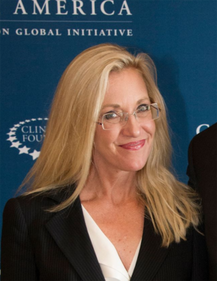|
On July 21, 2020, United Airlines reported their 2nd quarter 2020 earnings results, writing candidly that this was “the most difficult financial quarter in its 94-year history.” United posted a net loss of $1.6 billion, and an adjusted net loss¹ of $2.6 billion. (The difference between the two is largely due to the receipt of $1.5 billion in the Payroll Support Plan of the CARES Act.) Airline Revenue is Down 86.4% American Airlines’ 2Q 2020 revenue was down 86.4%, from $11.96 billion in 2019 to $1.6 billion this year. The net loss was $2.1 billion. Without the Payroll Support Program, $1.8 billion of financial assistance and other special items, American Airlines’ pretax loss was $4.3 billion. The 3rd quarter isn’t expected to be much better. American projects “system capacity” to be down approximately 60% year over year. United, Delta, Southwest and Alaska Airlines all reported year-over-year revenue losses of 81.6% to 88.3%. Loans, Blank Checks and Taxpayer Bailouts With so many grounded flights and with the Oil Wars that took oil costs negative for a brief period, fuel costs were down almost 90% in the 2nd quarter for the airlines. Labor costs were still high, however, due to the terms of the Payroll Support Program (PSP) of the CARES Act. As Airlines.org President & CEO Nicholas E. Calio wrote on April 14, 2020, the PSP “funding will allow those 750,000 men and women to stay on airline payrolls though Sept. 30, 2020, and out of the unemployment lines.” American Airlines anticipates having over 20,000 more team members on payroll than needed to operate its fall schedule. With over 10 million employees and a combined $1.5 trillion in economic activity in 2019 (per Airlines.org), the aviation industry is a priority for the Treasury Department and Federal Reserve Board’s rescue and recovery plan. However, investors are reticent to buy back into airlines stock, with the exception of Boeing, which has almost doubled since its low on March 23, 2020. Warren Buffett was an avid airline investor pre-coronavirus pandemic. In 2019, Berkshire Hathaway owned 11% of Delta Airlines and 9% of Southwest and United. Buffett dumped all of his investments in airlines in May of 2020 stating, “The world has changed for the airlines. It’s been seven weeks since I had a haircut and more than seven weeks since I put on a tie.” Many of us are rarely leaving home, much less jumping on a plane. Buffett acknowledged that his team had invested $7-8 billion in airlines, and sold for a loss. Work From Home and Restricted Travel Some corporations, like Facebook, Twitter and Square, have already decided that Work From Home will become a permanent staple of their business. Executives have become more accustomed to video conference meetings. These changes bode well for technology, and less so for airlines, auto manufacturers, commercial real estate, the malls of America, travel, hospitality, retail and the people who work for them. However, with Zoom Video trading with a PE of 1450, Netflix with a PE of 85 and many technology companies at all-time high prices, even the more stable companies and industries are vulnerable to a downturn in stock prices. Liquidity The airlines have been beefing up their war chests. American ended the second quarter of 2020 with $10.2 billion, and is projecting a U.S. Department of Treasury CARES Act Loan in the amount of $4.75 billion to close in the 3rd quarter of 2020. Will this be enough, when current liabilities are $18 billion and long-term debt and liabilities are $68 billion? Boeing’s liabilities are $152 billion, with $94.5 billion of those current. As of the 1st quarter of 2020, cash and cash equivalents were just $15 billion. The terrible year that airlines are having doesn’t bode well for the already beleaguered Boeing. Boeing announces their earnings the morning of Wednesday, July 29, 2020. With commercial aircraft deliveries down by 60% and Defense Space & Security deliverables down 47%, the report won’t be pretty. Investors won’t be the only ones waiting for this report. The Securities and Exchange Commission has taken an interest in forensically examining Boeing’s financials. On June 2, 2020, the SEC instructed Boeing’s executives to provide more information in the next earnings reports, writing, “As cancellations are now at significant levels, please be sure to include robust quantified and narrative disclosure of the expected impacts to your backlog, results of operations and cash flows in your future filings.” The Paycheck Support Plan is Scheduled to End September 30, 2020 Will Congress extend support to the airlines through March 31, 2021? Should the airlines be allowed to right-size their operations and furlough hundreds of thousands of employees? Unions for airline pilots, flight attendants and support personnel are all asking for continued labor support. Treasury Secretary Mnuchin supports continued aid to the airlines, but the loan covenants are not as strict about targeting the funds to labor as the Paycheck Support Program was. Last week United and American both announced furloughs totaling 61,000. When will people start flying again? Will we ever return to the same levels of travel? Has work from home and video conference meetings changed the travel industry forever? Would it be better to support American individuals rather than continue to funnel money through the large corporations? The Treasury Department is currently working on getting another $1200 by August to individuals earning under $75,000/annually. 2Q 2020 GDP Growth On July 30, 2020, the Bureau of Economic Analysis (BEA.gov) will release the advance estimate for 2nd quarter GDP growth. The contraction is predicted to be unprecedented. Estimates for just how bad it will be go as low as -35%. Stocks were high-priced before the recession began. The Treasury Secretary, the White House and Republicans all point to a better than expected recovery, rather than the terrible economic news. Is that a good reason to pay twice as much for stocks as normal? A Better Than Expected Recovery? The headlines have focused on the idea that the astonishingly terrible earnings news in the 2nd quarter of 2020, which is one for the history books, was expected and that we’ve already started a recovery. However, this recovery is based on money magically showing up in the bank accounts of people who are not working, including millions of airline employees. Betting on a V-shaped recovery, when July marked a new spike in the pandemic, could be an expensive proposition. Warren Buffett’s recent sell actions tell you everything about what he believes is the truth of this heartbreaking and challenging time. He didn’t sell everything, and neither should you. Market timing doesn’t work. However, he is well-diversified, and he is overweight in liquidity. The Stock Market is Not the Economy We all want an economically strong America, and for our lives to be stable and prosperous. However, Buy & Hope has cost investors more than half of their wealth in the last two recessions. Low interest rates create bubbles and over-leverage. Over-leverage in technology companies sparked the Dot Com Recession, with real estate being at the core of the problem in the Great Recession. All assets are trading high and at risk of price correction in the Corona Virus Recession. Bonds and dividends, which are traditionally considered to be safer, are losing money, cutting the yield and have at times been illiquid. Succeeding in the 21st Century requires a new action plan. Fortunately, there is a plan that earned gains in the last two recessions and has outperformed the bull markets in between. Better still, it is easy as a pie chart. Being properly diversified and having enough safe has been a wealth preservation tool. And that is something you should want to get familiar with now before the corporate bankruptcy party moves out of the Retail Apocalypse and into the broader economy. If you'd like to protect your wealth now, join me at my next Investor Educational Retreat. Students receive a large discount. Click on the banner ad below for additional information on the Oct. 3-5, 2020 Online Financial Empowerment Retreat. Register by July 31, 2020 to receive the best price. "Many people, including educated men and women, often get into trouble when they neglect to follow simple and fundamental rules of the type provided [by Natalie]. This is why I recommend them with enthusiasm." Professor Gary S. Becker. Dr. Becker won the 1992 Nobel Prize in economics for his theories on human "College students need this information before they get their first credit card. Young adults need it before they buy their first home. Empty nesters can use the information to downsize to a sustainable lifestyle, before they get into trouble." Joe Moglia, Chairman, TD AMERITRADE. Other Blogs of Interest 10 Questions for College Success Bank Earnings Season. Crimes. Cronyism. Speculation. Real Estate Solutions for a Post-Pandemic World. Copper and Chile Update. Gold Soars. Some Gold Funds Tank. Will the Facebook Ad Boycott De-FANG Stocks? Why Did My Cannabis Stock Go Down? Which Countries Are Hot in a Global Pandemic? Is Your Financial Advisor Good at Navigating Stormy Seas? $10 Avocados, Lies, Damn Lies, Statistics & Wall Street Secrets. It's Never a Crash. Work From Home and Intergenerational Housing. Biotech Races for a Coronavirus Cure. Are You Worried About Money? May is a Good Time for Rebalancing. Is FDIC-Insured Cash at Risk of a Bank Bail-in Plan? Why Did my Bonds Lose Money? Cannabis Update. Recession Proof Your Life. Free Videocon Monday, May 10, 2020. The Recession will be Announced on July 30, 2020. Apple Reports Terrible Earnings. We Are in a Recession. Unemployment, Rising Stocks. What's Going On? 8 Money Myths, Money Pits, Scams and Conspiracy Theories. 21st Century Solutions for Protecting Your Home, Nest Egg & Job. Wall Street Insiders are Selling Like There is No Tomorrow. Why Are My Bonds Losing Money? Tomorrow is Going to be Another Tough Day. Price Matters. Stock Prices are Still Too High. Should You Ride Things Out? 7 Recession Indicators Corona Virus Update. The Bank Bail-in Plan on Your Dime. NASDAQ is Up 6X. CoronaVirus: Which Companies and Countries Will be Most Impacted. Is Tesla Worth GM and Ford Combined. Artificial Intelligence is on Fire. Is it Time to Buy S'More? Take the Retirement Challenge. 2020 Investor IQ Test. Answers to the 2020 Investor IQ Test. The Cannabis Capital Crunch and Stock Meltdown. Does Your Commute Pollute More Than Planes? Are Health Care Costs Killing Your Budget? 2020 Crystal Ball. The Benefits of Living Green. Featuring H.R.H. The Prince of Wales' Twin Eco Communities. What Love, Time and Charity Have to do with our Commonwealth. Interview with MacArthur Genius Award Winner Kevin Murphy. Unicorns Yesterday. Fairy Tales Today. IPO Losses Top $100 Billion. Counting Blessings on Thanksgiving. Real Estate Prices Decline. Hong Kong Slides into a Recession. China Slows. They Trusted Him. Now He Doesn't Return Phone Calls. Beyond Meat's Shares Dive 67% in 2 Months. Price Matters. Will There be a Santa Rally? It's Up to Apple. Will JP Morgan Implode on Fairy Tales and Unicorns. Harness Your Emotions for Successful Investing. What the Ford Downgrade Means for Main Street. The Dow Dropped Over 1000 Points Do We Talk Ourselves into Recessions? Interview with Nobel Prize Winning Economist Robert J. Shiller. Ford is Downgraded to Junk. From Buried Alive in Bill to Buying Your Own Island. The Manufacturing Recession. An Interview with Liz Ann Sonders. Gold Mining ETFs Have Doubled. The Gold Bull Market Has Begun. The We Work IPO. The Highs and Hangovers of Investing in Cannabis. Recession Proof Your Life. China Takes a Bite Out of Apple Sales. Will the Dow Hit 30,000? A Check Up on the Economy. Red Flags in the Boeing 2Q 2019 Earnings Report The Weakening Economy. Think Capture Gains, Not Stop Losses. Buy and Hold Works. Right? Wall Street Secrets Your Broker Isn't Telling You. Unaffordability: The Unspoken Housing Crisis in America. Are You Being Pressured to Buy a Home or Stocks? What's Your Exit Strategy? It's Time To Do Your Annual Rebalancing. Cannabis Crashes. Should You Get High Again? Are You Suffering From Buy High, Sell Low Mentality? Financial Engineering is Not Real Growth. The Zoom IPO. 10 Rally Killers. Fix the Roof While the Sun is Shining. Uber vs. Lyft. Which IPO Will Drive Returns? Boeing Cuts 737 Production by 20%. Real Estate is Back to an All-Time High. The Lyft IPO Hits Wall Street. Should you take a ride? Cannabis Doubles. Did you miss the party? 12 Investing Mistakes Drowning in Debt? Get Solutions. CBD Oil for Sale. The High Cost of Free Advice. Apple's Real Problem in China: Huawei. 2018 is the Worst December Since the Great Depression. Will the Feds Raise Interest Rates? Should They? Learn what you're not being told in the MSM. Russia Dumps Treasuries and Buys Gold OPEC and Russia Cut Oil Production. Important Disclaimers Please note: Natalie Pace does not act or operate like a broker. She reports on financial news, and is one of the most trusted sources of financial literacy, education and forensic analysis in the world. Natalie Pace educates and informs individual investors to give investors a competitive edge in their personal decision-making. Any publicly traded companies or funds mentioned by Natalie Pace are not intended to be buy or sell recommendations. ALWAYS do your research and consult an experienced, reputable financial professional before buying or selling any security, and consider your long-term goals and strategies. Investors should NOT be all in on any asset class or individual stocks. Your retirement plan should reflect a diversified strategy, which has been designed with the assistance of a financial professional who is familiar with your goals, risk tolerance, tax needs and more. The "trading" portion of your portfolio should be a very small part of your investment strategy, and the amount of money you invest into individual companies should never be greater than your experience, wisdom, knowledge and patience. Information has been obtained from sources believed to be reliable. However, NataliePace.com does not warrant its completeness or accuracy. Opinions constitute our judgment as of the date of this publication and are subject to change without notice. This material is not intended as an offer or solicitation for the purchase or sale of any financial instrument. Securities, financial instruments or strategies mentioned herein may not be suitable for all investors.
Comments are closed.
|
AuthorNatalie Pace is the co-creator of the Earth Gratitude Project and the author of The Power of 8 Billion: It's Up to Us, The ABCs of Money, The ABCs of Money for College, The Gratitude Game and Put Your Money Where Your Heart Is. She is a repeat guest & speaker on national news shows and stages. She has been ranked the No. 1 stock picker, above over 830 A-list pundits, by an independent tracking agency, and has been saving homes and nest eggs since 1999. Archives
July 2024
Categories |











 RSS Feed
RSS Feed